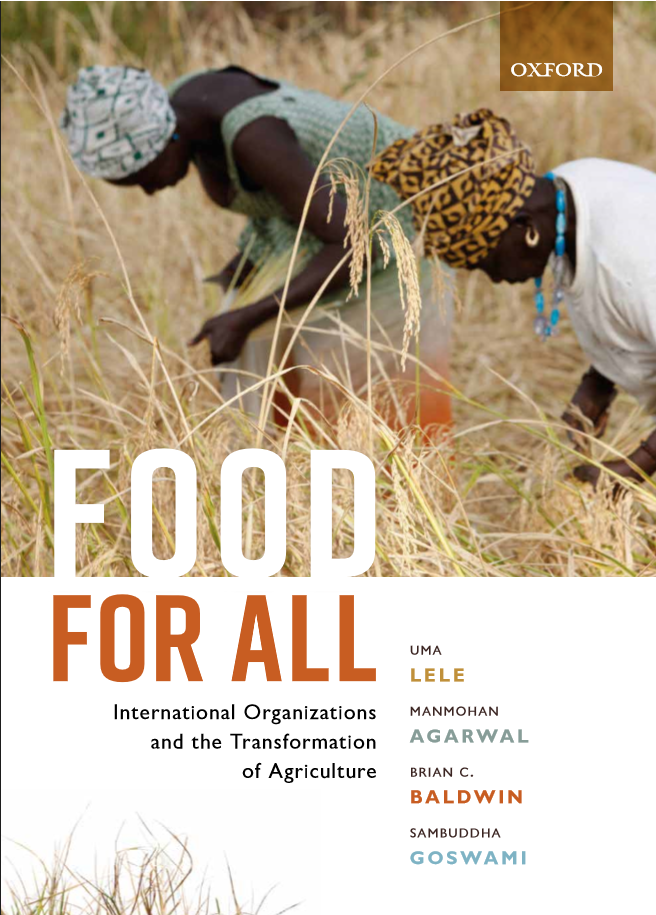Food for All: International Organizations and the Transformation of Agriculture

Prolonged neglect of agriculture and the 2007–2008 food and financial crises put food and agriculture back on the agenda. In 2015 the international community adopted Sustainable Development Goals—setting goals and undertaking to eradicate extreme poverty and achieve shared prosperity by 2030.
However, the global COVID-19 pandemic has substantially set back the development agenda, with a sharp drop in global GDP. For the first time, poverty has increased, and the poorest people have been most affected, also exposing weaknesses of past growth strategies that made them vulnerable to pandemics in a situation of growing inequality.
Food for All: International Organizations and the Transformation of Agriculture surveys the food and agricultural development aid delivered by five major international organizations since their establishment: The World Bank Group, the Food and Agriculture Organization of the United Nations, the World Food Programme, the International Fund for Agricultural Development, and CGIAR. It gauges their relevance, effectiveness, and impacts in a dramatically changed world in which food and agricultural development has been occurring in the developing world, that is, in the context of population growth and urbanization, globalization, climate change, biodiversity loss, and dietary transition.
The project grew out of an interest to explore how to address the challenges and opportunities of the global food and agriculture system by identifying the core needs for international coordination and system management, and how best to structure that system. The study draws on research, evaluations, interviews, and the authors’ operational experience. The book assesses the responses of these organizations to the changing external and internal environments to determine how they can best address the substantial challenges of the post–2015 agenda. What do they need to do to remain relevant and be effective?
